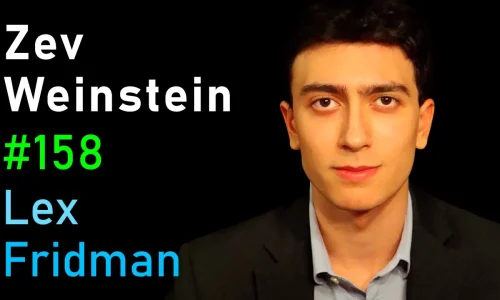See all Lex Fridman transcripts on Youtube

Zev Weinstein: The Next Generation of Big Ideas and Brave Minds | Lex Fridman Podcast #158
1 hours 44 minutes 31 seconds
🇬🇧 English

Omnivision Solutions Ltd
- Getting Started
- Create Transcript
- Pricing
- FAQs
- Recent Transcriptions
- Roadmap